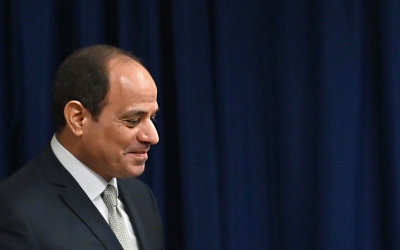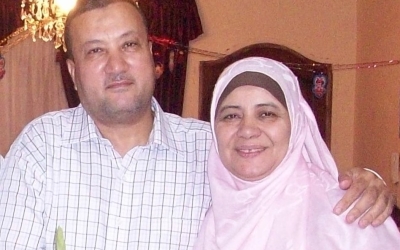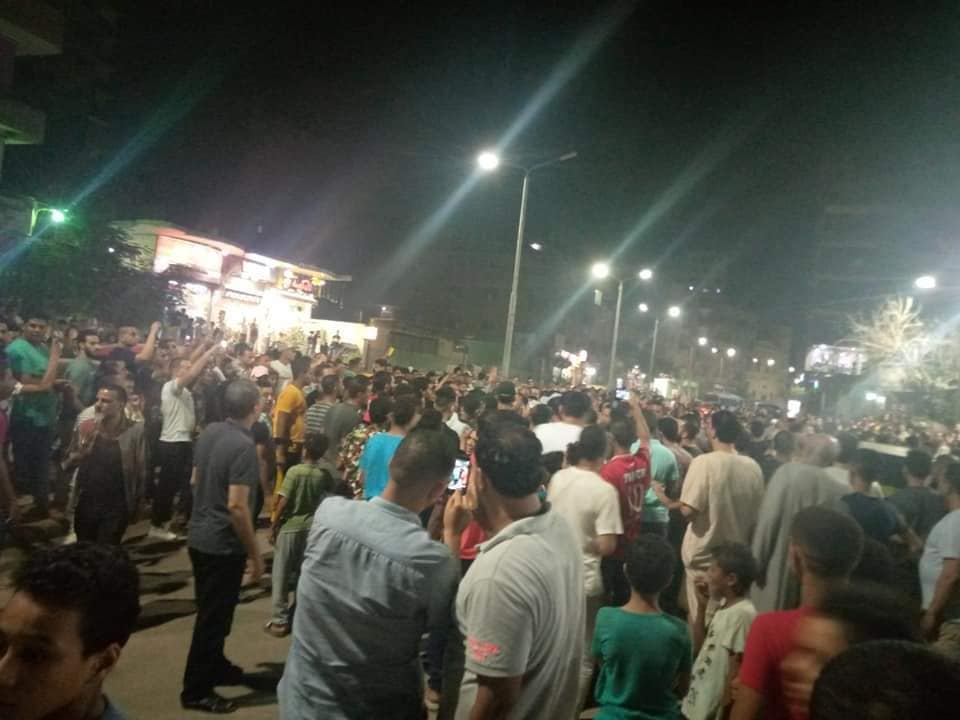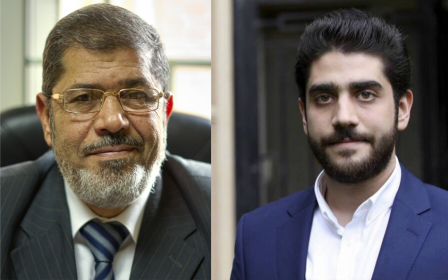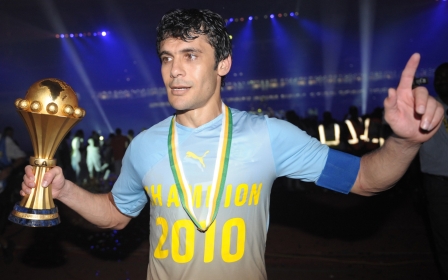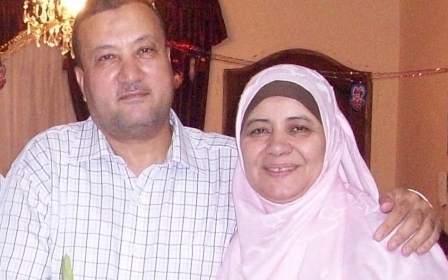Rare protests in Egypt sparked after man ‘tortured to death’ in police custody
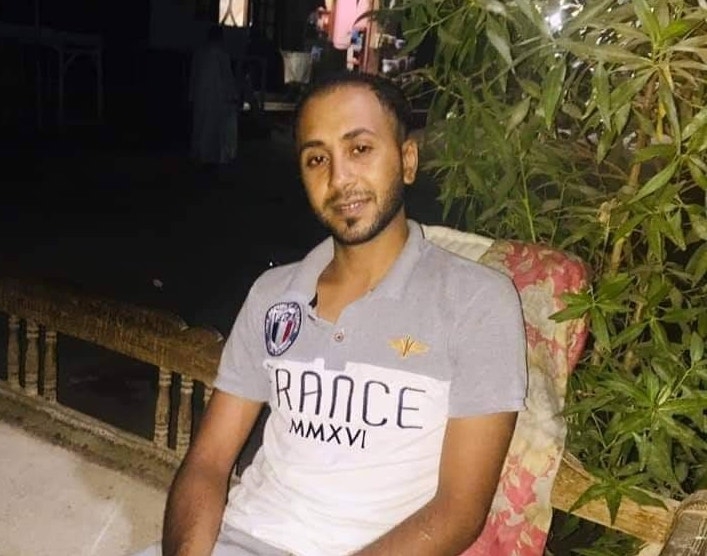
The family and friends of a young Egyptian man are accusing police forces in the Giza governorate of torturing him to death after he refused to pay a bribe, Middle East Eye has learned.
Islam al-Ostraly, a 26-year-old bird shop owner, was announced dead on Monday at the hospital of Um al-Masreyeen in Giza's Moneeb neighbourhood two days after his arrest by police.
New MEE newsletter: Jerusalem Dispatch
Sign up to get the latest insights and analysis on Israel-Palestine, alongside Turkey Unpacked and other MEE newsletters
According to his friend Mohamed, police arrested Ostraly on Saturday after a fist fight between him and one police officer who asked him to remove the shop's front shades, claiming it was illegal.
“The officer asked for a bribe, otherwise he threatened to remove the front shade,” Mohamed, an eyewitness, told Middle East Eye.
“The low-ranking officer insulted him, leading to a fist fight, then ended up dragging him to the police van.
“[Ostraly] made a fuss and wanted to get out of the police van so they stopped the car and continued beating him in front of all the street’s residents.”
A day later, he added, another police force inspected all CCTV cameras and confiscated all the footage in the area that could have shown the incident.
Signs of torture
On Monday noon, Ostraly’s family received a call from the police informing them that he died of a “circulatory failure”.
But a family friend, Farid, told MEE that Ostraly’s body had signs of torture, cuts, bruises, burns, and scars on the testicles and neck.
“We were horrified by what we saw, and we later knew the names of the three officers who participated in this crime,” Farid added.
'Islam was like many other young men, always looking for work, thriving to support his family, and trying to find a way to secure his future in this country'
- Ali, friend of Islam Ostraly
Witnesses say the family headed to the police station to file a report but were banned from entry and some of them were detained.
“That is when the district’s civilians got angry and started protesting around the police station,” Ismael, an owner of a clothes shop near Ostraly’s house, told MEE.
MEE learned later on Tuesday that members of Ostraly’s family, including his mother, were arrested in order to pressure the family to sign the official death certificate that states the cause of death was a circulatory failure, a reason commonly cited in incidents of deaths in detention in Egypt.
Ostraly's body is currently held at the Forensic Medicine Authority in al-Azbakeya, Cairo.
Spontaneous protests
Ostraly’s death sparked spontaneous protests by residents of his neighbourhood, who initially gathered outside the hospital, then marched towards the police station, chanting “the police are thugs” and “we want justice”.
Middle East Eye counted around 300 people taking part in the protest outside the police station.
Police forces fired live warning rounds to disperse the crowds. Tear gas canisters were also used, leading protesters to flee the area in smaller groups allowing policemen in plainclothes to make arrests.
MEE witnessed at least five arrests, while residents say that another ten have been arrested.
Citizens in the Moneeb area, a working-class neighbourhood, fear the protesters will be given jail sentences.
The neighbourhood is currently swarmed with police agents and officers in plainclothes, as Ostraly's family and friends prepare for his funeral.
“Islam was a man of his word and was kind and supportive of his family and was always helpful to poorer individuals in the area,” his friend Ali said.
‘The new Khaled Said’
Ostraly is yet another victim of police brutality in Egypt. Several human rights organisations have described torture and ill treatment of detainees and civilians, specially from working-class areas, as systematic.
During Tuesday's protest, several participants talked to MEE about how the police are currently more immune and “more vicious” in dealing with civilians from less privileged social classes.
Rights groups have repeatedly denounced alleged torture and deaths in detention.
Egypt's interior ministry has said it does not condone torture but said there have been "individual" cases of abuses.
On social media, many described Ostraly as the new “Khaled Said”, a young man in Alexandria who was beaten to death by the police in 2010, becoming one of the sparks of the Arab Spring protests of 2011.
At the time, Said was accused by pro-state media of being a drug dealer and was smeared in order to justify the killing.
Similarly, a police source told MEE that Ostraly and another man were involved in a street fight that led to the injury of the former.
“Then the neighbours called and a police force from the station arrived only to find that Islam died,” he added.
The police source also accused Ostraly of being “a drug dealer who created problems in his area”.
However, his friend Ali denied this.
“Islam was like many other young men, always looking for work, thriving to support his family, and trying to find a way to secure his future in this country.”
Asked whether this incident will influence him to react to calls by an exiled Egyptian whistleblower to take part in anti-government protests slated for 20 September, Ali said he and many others will now consider participation.
“Nobody is safe. I could be going to run a small errand or even to buy milk and I could be kidnapped and killed in a police station and will end up being called a drug dealer,” he said.
Another narrative was adopted by pro-government newspapers, which cited high-ranking officials at the Giza security directorate as saying that a fight broke out between two families in the area leading to mass arrests, including Ostraly’s.
“The next day, the deceased [Ostraly] was very sick and was transferred to hospital and died while being hospitalised due to a heart attack.”
Egypt has tried and sentenced several policemen for violent deaths in detention in recent years. These trials take place if the authorities fail to cover up the incident and if demonstrations take place protesting the killing.
In 2015, two police officers accused of torturing and beating to death a lawyer, Karim Hamdi, in the Mattariya police station were jailed after a protest in front of the Lawyers Syndicate.
In 2018, an officer in the Moqatam police station was sentenced to three years in prison after being found guilty of torturing and killing a young man nicknamed Afroto whose death was also followed by protests.
In July and August, Egypt's Nadeem Centre for the Rehabilitation of Torture Victims documented around 55 incidents of torture in police detention, along with 15 deaths in police custody.
Middle East Eye delivers independent and unrivalled coverage and analysis of the Middle East, North Africa and beyond. To learn more about republishing this content and the associated fees, please fill out this form. More about MEE can be found here.


